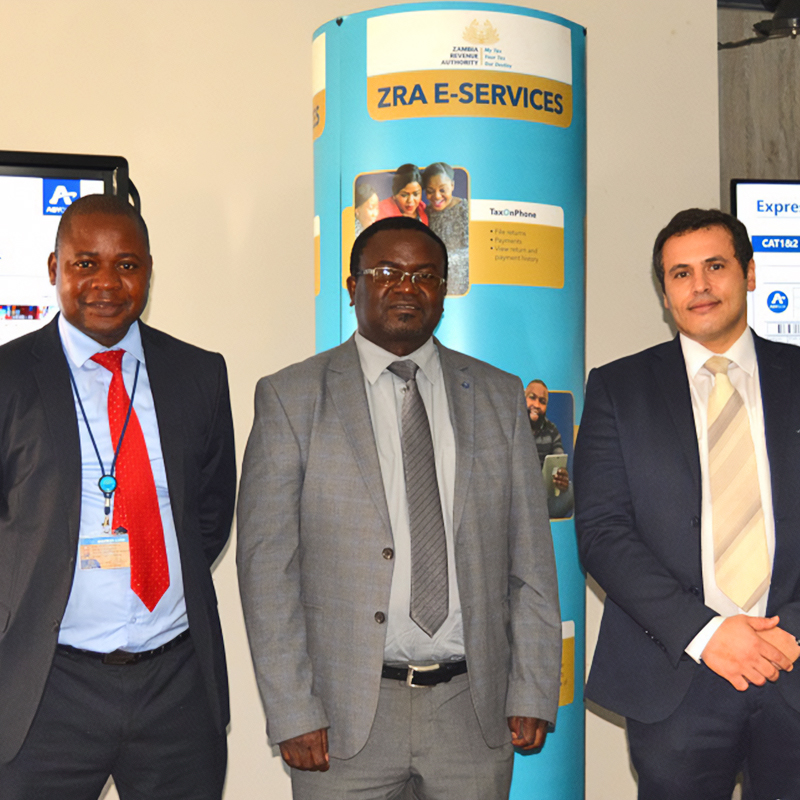
News
Zambia Improves Customs Technology to Increase Consistency, Risk Management

The Advanced Cargo Information solution based on the International Air Transport Association (IATA) Cargo XML filing in ASYCUDAWorld has been launched to help airlines, express operators, freight forwarders and shippers to easily provide Zambia Revenue Authority with information that is technically correct and in line with the standards of international bodies such as the World Customs Organization (WCO) and United Nations. The system will also better enable customs to carry out risk assessments for air cargo shipments and improve compliance with security regulations.
The IATA Cargo-XML solution modernizes data exchange for air cargo clearance by using IATA standards in combination with the ASYCUDAWorld customs management system. ASYCUDAWorld was developed by the United Nations Conference on Trade and Development’s (UNCTAD) Automated Systems for Customs Data (ASYCUDA) Programme, whose software is currently being used by over 100 countries and territories worldwide to accelerate customs clearances and increase the pace of secure, international trade.
The adoption of IATA Cargo-XML messaging and the new ASYCUDA module for simplified and express declarations management for courier operators in Zambia will promote stronger compliance in the region. It makes it easier for airlines, freight forwarders, express operators, and shippers to ensure that the information being provided to customs before the arrival of air cargo shipments in country is of high quality and in line with the security standards set by the WCO. It also reduces message duplication and simplifies communication across the supply chain.
Mr. Sigande, Customs Commissioner for Zambia Revenue Authority (ZRA), spoke during a virtual awareness raising workshop which discussed and considered the final development and implementation activities of ZRA’s Air Cargo Courier Manifest project. He said the digitalization of the clearance process of air cargo is well aligned with the Authority’s vision to have a data driven revenue administration, leveraging on electronic platforms. The acting Commissioner General added that the digitalization of the Air Cargo Courier Manifest is also aimed at facilitating trade through airports, adding that the current manual process has posed challenges such as delayed clearance, misplaced documents, and compromised data quality.
Supporting partners and stakeholders from UNCTAD, WCO and IATA were in attendance and pledged their support to ensuring the achievement of the digitalized Air Cargo Courier Manifest project in ZRA.
Mr. Ouassim Gahbiche, UNCTAD ASYCUDA team lead for air cargo solutions said, “The use of advanced cargo information to facilitate pre-arrival processing and accelerate the release of cargo is consistent with ZRA’s obligations under the World Trade Organization’s Trade Facilitation Agreement.”
The implementation of IATA Cargo-XML standards in Zambia was supported by UNCTAD and IATA experts during a workshop delivered at the end of November and subsequently through tailored capacity building sessions. The system is already operational for most airlines flying to Zambia.
The Advanced Cargo Information solution based on the International Air Transport Association (IATA) Cargo XML filing in ASYCUDAWorld has been launched to help airlines, express operators, freight forwarders and shippers to easily provide Zambia Revenue Authority with information that is technically correct and in line with the standards of international bodies such as the World Customs Organization (WCO) and United Nations. The system will also better enable customs to carry out risk assessments for air cargo shipments and improve compliance with security regulations.
The IATA Cargo-XML solution modernizes data exchange for air cargo clearance by using IATA standards in combination with the ASYCUDAWorld customs management system. ASYCUDAWorld was developed by the United Nations Conference on Trade and Development’s (UNCTAD) Automated Systems for Customs Data (ASYCUDA) Programme, whose software is currently being used by over 100 countries and territories worldwide to accelerate customs clearances and increase the pace of secure, international trade.
The adoption of IATA Cargo-XML messaging and the new ASYCUDA module for simplified and express declarations management for courier operators in Zambia will promote stronger compliance in the region. It makes it easier for airlines, freight forwarders, express operators, and shippers to ensure that the information being provided to customs before the arrival of air cargo shipments in country is of high quality and in line with the security standards set by the WCO. It also reduces message duplication and simplifies communication across the supply chain.
Mr. Sigande, Customs Commissioner for Zambia Revenue Authority (ZRA), spoke during a virtual awareness raising workshop which discussed and considered the final development and implementation activities of ZRA’s Air Cargo Courier Manifest project. He said the digitalization of the clearance process of air cargo is well aligned with the Authority’s vision to have a data driven revenue administration, leveraging on electronic platforms. The acting Commissioner General added that the digitalization of the Air Cargo Courier Manifest is also aimed at facilitating trade through airports, adding that the current manual process has posed challenges such as delayed clearance, misplaced documents, and compromised data quality.
Supporting partners and stakeholders from UNCTAD, WCO and IATA were in attendance and pledged their support to ensuring the achievement of the digitalized Air Cargo Courier Manifest project in ZRA.
Mr. Ouassim Gahbiche, UNCTAD ASYCUDA team lead for air cargo solutions said, “The use of advanced cargo information to facilitate pre-arrival processing and accelerate the release of cargo is consistent with ZRA’s obligations under the World Trade Organization’s Trade Facilitation Agreement.”
The implementation of IATA Cargo-XML standards in Zambia was supported by UNCTAD and IATA experts during a workshop delivered at the end of November and subsequently through tailored capacity building sessions. The system is already operational for most airlines flying to Zambia.




